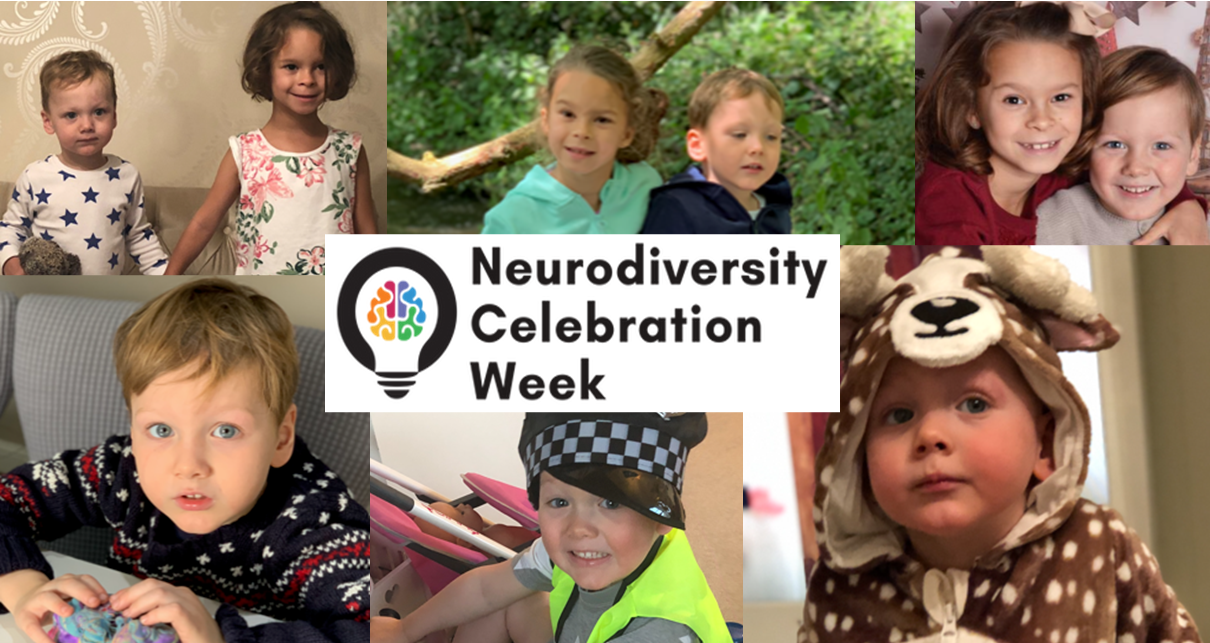

Chris Davis is an accomplished Interim Transformation and Programme Management professional who has worked closely with Stanton House for several years.
Like so many parents with neurodiverse children, he and his wife have had to continually learn and adapt to their complex needs, while juggling the pressures of demanding jobs.
To celebrate neurodiversity week, we wanted to share his story…
Hello everyone – I’m Chris Davis, an interim Transformation and Operations Lead.

I’m also Chris Davis, father to two adopted, neurodiverse children. Sophie, 10, has Foetal Alcohol Spectrum Disorder (FASD) resulting from her birth mother’s alcoholism. In short, this is permanent brain damage. Max, 6, has ASD (Autism Spectrum Disorder), ADHD, Sensory Processing Disorder, Severe Attachment Disorder, Pathological Demand Avoidance and Dyspraxia, and is as complex as his multiple diagnoses would suggest.
As part of Neuro Diversity week, I thought I’d share with you what a typical day in our family is like! I’ve chosen a weekday where I’m working at home, but honestly, most days are simply variations on this theme!
Our day normally starts somewhere between 4:30AM and 5:30AM – Max’s attachment means he has to sleep in the bed with my wife, with me in the spare room – he’s convinced himself that as the “man of the house” (his words) he needs to “keep Mummy safe!” – truth is he’s terrified of being on his own, so it’s been this way for the last four years. Once he’s up, I take over from Issey, my wife, who has typically had a very restless night with Max constantly on the move – even while sleeping his crippling anxiety means he remains in a state of hyper-vigilance. Issey will try and grab an hour or two extra sleep while I take Max downstairs for a play (normally hide and seek or “den building” with the cushions from the sofa).
At about 6:30 Max’s sister Sophie will wake, and will text me her breakfast order. Max can be spontaneously violent with seemingly no obvious trigger, so Sophie rarely leaves her room until both parents are up. I’ll make Sophie’s breakfast, and as quietly and covertly as I can, deliver it to her in her room. We have a four year old Springador called Betty, who is a trained therapy dog, and she keeps Max company while I quickly take Sophie her food.
Issey will normally be showered and up by about 7:00, and at that stage we will take a child each and ensure they are ready for school. Neither of them can properly feed or dress themselves, so we try and give them as much help as they need whilst giving them as much of a sense of independence as we can – not always an easy balance!
Max’s pre-birth trauma means that he often can’t understand the source of his anxiety, as it was hard wired into him before he was born – a smell, a sound, even a vague memory, can send him from utter serenity to complete meltdown in the blink of an eye – and this will typically result in bursts of violence to whoever is closest to him. It’s not, and never has been, his fault in any way, it’s his brain constantly moving into fight or flight mode, and he instinctively feels the need to ensure his very survival against a threat he can’t see, hear, articulate or describe.
Once the kids have gone to school, if it’s a “work from home” day for me, I’ll grab a shower, head up to the office, put my “happy” face on and face the world! Issey spends her entire day researching new theories or techniques that could help our children, looking for local attractions that have SEN days or “relaxed” performances of events, as neither child can cope with the normal hustle and bustle of soft play, theme parks, pantomimes or activities – we have to go to sessions that have the capacity dialled down, noise levels reduced, and triggers minimised.
We tried many times to go to ”normal” events, and ignore the judgement of families who didn’t know or understand our circumstances, but it became too tiring and stressful having to constantly apologise for what you know is not their fault at all!
We are also constantly battling with the local authority, who are perpetually stating that there is nothing wrong with the children as they are “normal” at school (google “autistic masking” for a two minute, very clear explanation of what the reason behind this is) and the fight to get our kids the therapeutic and educational support they need and deserve is my wife’s full time job.
What feels like an hour after they left, it is in fact 3:00PM, and we brace ourselves for their return. Obviously I’m still only part way through the working day, but Issey braces herself for a tricky couple of hours (transitions to and from home are the most difficult for the kids, as they rely on routine and predictability in their schedule) – bath and bedtime are as traumatic as you can imagine, with neither child wanting to go to bed! Sophie is by far the easier to settle – I normally read her a story, and she’ll fall asleep mid way through the story most nights. Max normally takes at least 90 minutes to settle, so normally by about 8:00PM Issey will come downstairs. We normally then have a mad rush to do as many of the household chores as we can, including making and eating dinner, because on a normal evening Max will be back downstairs by 9:30 as he’s “worried Mummy will be missing him” – he’ll then fall asleep on her before I carry him back up to bed at about 10:30 when we end our day.
And you know what? I wouldn’t change any of it!
The pleasure, love, and life lessons they give, the pure joy on their faces for the seemingly simplest of reasons, gives you the fuel to go again – every day, without fail. They are challenging in the extreme, but enormously and unmeasurably wonderful. I have birth children and adopted children, and love them all the same.
Every tiny victory we achieve, every specialist we get an appointment with who gives us a new technique, every book, podcast, video clip or training course we discover that broadens and deepens our knowledge, feels like a lottery win.
I’m sure people may read this and think “I don’t know how they do it” but you just do it! Any of you that have neuro-diverse family members will, I’m sure, relate to some extent to some of what we’re saying.
I have shared a few pictures above so you can see for yourself the smiles and joy I’ve mentioned!
Similar blogs




